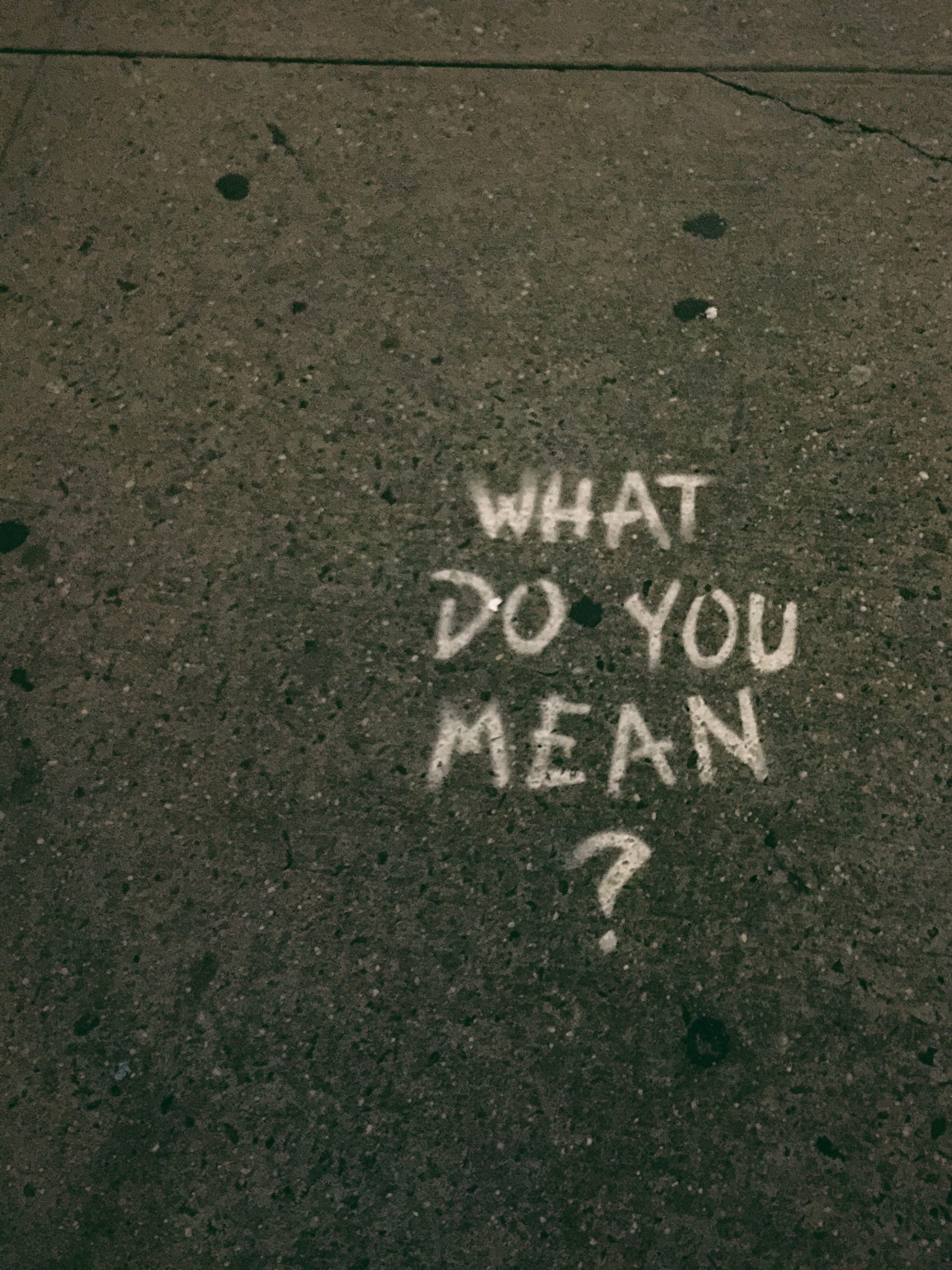As A Nation Thinketh, So It Becomes

Today, many have an estranged relationship with the truth.
The humorist, Josh Billings put it this way, “It’s what we know that ain’t true that causes us so much trouble.”
Fortunately, the solution is simple.
It is discernment.
I was not the first to do so, and I will not be the last. And, it was certainly not rocket science.
Once I began my research, it became quite easy. In fact, knowing what I do now, I wish I had ventured out of my cocoon (mental and physical) much sooner.
But, at the time, there were few who chose to publicly challenge the acclaimed experts. Interestingly, it was my curiosity and skepticism that made me think and speak differently about the subject. (Inexplicably, even now, many schools, businesses, and other organizations are still planning and implementing draconian policies that disrupt the many when only the extreme few are at risk.)
I’ve concluded that curiosity and skepticism prove very useful, but are in short supply, in evaluating the world today. These two qualities, key elements of independent thinking, prompted me to look for and find what was hidden in plain sight the entire time.
I encourage you to be curious and skeptical as well. Maybe you’ll come to a different conclusion? But, we will never know what your curiosity and skepticism might produce unless you put them into practice, exercising them with a healthy dose of common sense.
As Ben Franklin observed, “Common sense is something that everyone needs, few have, and none think they lack.”
The only downside to discernment is that it can be tedious and time-consuming to learn the facts and uncover the truth. In today’s information-heavy society, discerning the truth can be like trying to find a needle in a haystack. Sometimes we must dig through the non-sense to see the common sense.
However, it’s a vital part of our civic duty and a small price to pay given the life and death sacrifices of previous generations. In other words, given what is at stake, searching for the truth is a productive use of our time and a prudent investment in our future.
So, what exactly is discernment?
It is the learned ability to recognize what is true in the vast ocean of ideas, story-lines, agendas, and assertions that surround us. If ever there were a pressing need for discernment, it is right now, today.
Questions abound.
Who should I hire? What school is best for my kids? Should I take this job? Are we being deceived? Who is trustworthy? Is this relationship right for me? Is he manipulating me? Should I eat these foods or those foods? Who deserves my vote? Who can I rely on for good advice? What should we do next? What should we stop doing? What’s the wise thing to do?
In everyday life, discernment protects us from drifting away from our values, ideals and priorities. During tough times, discernment keeps us grounded, poised and pointed true-north. In crises, discernment prevents overreaction, intercepts foolish conclusions and leads to wise decision-making.
While not complex or sophisticated, discernment is far from easy to attain. But this old-fashioned virtue is worth every effort you make to acquire it. King Solomon tells us in Proverbs 18:15 that, “The heart of the discerning acquires knowledge for the ears of the wise seek it out.”
And the apostle Paul warns us in Romans that we shouldn’t get so comfortable with our culture that we fit into it without even thinking, testing or discerning what is the good, pleasing, and perfect will of God. The Roman scholar and philosopher, Cicero stated it like this, “The function of wisdom is to discriminate between good and evil.”

Discernment can renew and redirect your life. Even better, if exercised throughout our society, discernment can transform a culture.
In the universe of thought, silence, conformity, and compliance make for a toxic intellectual soup.
Unlike the product of groupthink, the best ideas must be robustly challenged with tough questions, contrarian viewpoints, and intense cross-examination.
Author Rick Warren put it this way, “A lie doesn’t become truth, wrong doesn’t become right and evil doesn’t become good, just because it’s accepted by a majority.”
We should all be suspicious of leaders and movements that insist on uniformity of thought. We should all be alarmed when leaders cleverly position opposing viewpoints in a derogatory light. We should all wave a red flag when we see dissenting voices being stifled.
Unfortunately this is all too common. Only when ideas are given 360 degrees of meaningful and transparent debate will the best ideas rise to the surface. This goes for boardrooms and classrooms, as well as in the court of public opinion.
Viewpoints cannot be summarily dismissed or discarded due to political correctness, otherwise, pervasive groupthink will surely follow.
But, in order to have constructive discussions, we must be able to first discern the truth and agree on what constitutes current reality. If we can’t share a common vocabulary or a common acceptance of objective facts, we cannot make progress.
After all, how do we move forward when everyone is allowed to subjectively define their own truth, based on how they feel at that moment…and then later, edit that previous “truth” to fit changing circumstances? How can we fix obvious problems in society, or even in our own homes, if we cannot agree on a common reality?
We can definitely have our own opinions, and many of us still do, but we can no longer allow them to be called “truth” as is currently commonplace in pop-culture. Truth is not something we can claim as an individual possession; rather, it is something that exists independently and can be verified dispassionately.
Truth is rooted in facts or objective reality. It accurately reflects what has or is currently happening. It can be healthy to express one’s feelings about the facts, but those feelings cannot be a substitute for the facts.
Facts are essential.
Facts reflect the truth of a situation, and form the foundation from which honest discussion can be initiated and prudent solutions can be developed and implemented. Facts that cannot be proved cannot be considered facts.
The alternative is chaos.
Becoming discerning, though, is tougher than ever. Today, we are awash with information, but sorely deficient in wisdom. Painfully obvious, right? We are inundated with slogans and soundbites. Like never before, we are prodded and pressured to fall in line and conform with the latest in “trending” thinking.
For young adults, especially, this is a big problem.
Not only do younger people necessarily have fewer life experiences from which to draw conclusions, discern truth, and demonstrate wisdom, many have only been taught what to think, not how to think.

Instead of being exposed to a diversity of competitive ideas, they have been “educated” with a singular way to think and a uniform, emotive way in which to interpret the world around them. A paradigm shift for many is learning to value the truth, because it is the truth, and not just because it feels true.
Having received an adolescent hall pass when it came to developing critical thinking skills, many do not know how to actively seek the truth, but instead have come to rely heavily on what they feel or presume to be the truth.
Don’t get me wrong, lack of discernment is hardly a problem limited to any specific generation or demographic. It can happen to any of us. But as individuals living in an increasingly secular, complicated, and broken world, we need a plan to counteract the confusion.
To wrap up this message, I have three simple recommendations that you may find helpful in navigating turbulent times.
Connect with God daily.
Investing time alone each day with the Creator produces a world of benefits, including discernment. Consistent exposure to scripture helps us to know God more deeply. It helps us better understand his plan for us, thereby illuminating what is right, in His eyes, and what is not.
Regular prayer and devotion time changes who we are and how we interpret what is going on in the world around us. Connecting with God daily prepares us to…
Observe the world wisely.
While most Christians pray for and work toward a peaceful, loving world, those with discernment recognize the brokenness of humanity, and don’t bury their heads in the sand pretending otherwise. The timeless standards of God serve as a filter revealing crooked beliefs and cultural counterfeits that falsely and repeatedly promise solutions they have no power to produce.
Scripturally grounded, and less prone to accepting the hype of superficial trends and fads, those with discernment spot and scrutinize false notions quickly and reject them emphatically by comparing what’s being “sold” as the truth against the actual truth of God’s word. Observing the world wisely prompts us to…
Ask Intelligent Questions
Asking and answering questions is essentially what thinking is all about. With mobile devices and non-stop connectivity, it’s easy to allow the 24/7 media culture to dominate our thinking with pithy soundbites and memorable one-liners.
Instead of pondering and reflecting on the happenings of the day, we may slip into the habit of merely reacting to the thoughts we see on our screens, rather than those we originate in our minds. On the other hand, proactive, self-generated questions that carefully probe for the truth make us more likely to uncover it.

For example, here are some strategic questions I use when helping clients manage a crisis or adversity:
What exactly is the problem we are trying to solve? Are we addressing the root cause or just the symptom? Have I clearly separated the causes from the effects?
Are my efforts more directed at image management, damage control, or a practical, sustainable solution? Could anything else be a related or even bigger problem?
Can the problem as we have defined it be measured or quantified? Can we articulate and document the problem clearly and succinctly?
Can we solve the problem as defined? What will be different or better a decade from now? A year from now? Three months from now? What might be worse if we miscalculate?
What are the facts? What does the data tell us? Aside from raw emotion or personal sentiment, what is the reality on the ground? Have we been able to filter our emotions through reason and logic? Could we be overlooking a key piece of information?
Is there anything we are missing? If we were missing another key element, what might it be? Have we looked for and/or vetted any blindspots?
Are there any statistics or contrarian perspectives that could be illuminating or add to our understanding of the situation? Might our personal feelings on the matter be clouding our judgement? How so, exactly?
What are our assumptions? Could our assumptions be wrong? In what areas should we be more curious? Does this pass the “shoe on the other foot” test? How and where could we dig deeper for a clearer picture of what’s really going on?
Are we honestly seeing the big picture? Is there any difference between the perceived problem and the actual problem? Could this difference materially affect our solution?
Now you have these questions to apply to challenges in your life. But these questions only work if you do just that. They only work if you ask and answer them in real-life scenarios.
Please hear me.
I don’t claim to have the perfect solutions to solve our nation’s problems.
But I am certain of this.
Whatever the solutions, they will demand discernment.

